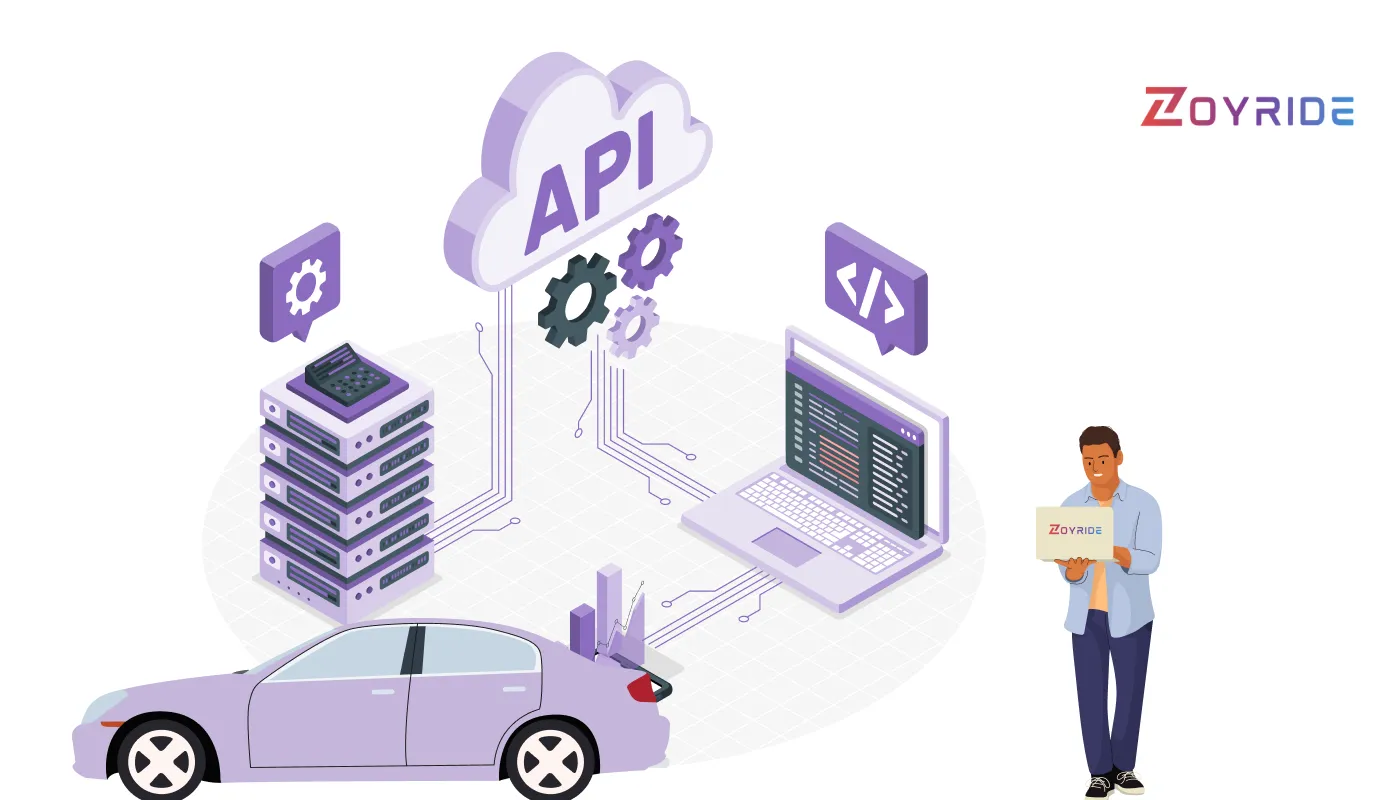The Role of API Integrations in Building a Scalable Taxi Business

Scaling a taxi business in 2025 is not just about adding vehicles or drivers. The real game-changer lies in how well your systems—dispatch, driver apps, payments, and analytics—work together. API (Application Programming Interface) integrations make this possible by connecting all your tools into one seamless network.
What Are API Integrations?
APIs act as digital bridges that let different software share data instantly.
For taxi companies, this means your dispatch software, messaging apps, payment processors, and partner services all work in sync without manual effort.
Why APIs Matter for Taxi Operators
For taxi operators, APIs provide three key advantages:
- Automation: Reduces manual tasks in bookings, dispatch, and payments.
- Real-Time Visibility: Keeps drivers, passengers, and operations in sync with live updates.
- Scalability: Enables easy expansion into new markets, partnerships, or services.
In short, APIs make your operations smarter and future-ready.
Kinds of API Integrations Taxi Businesses Can Use
Modern taxi businesses can unlock massive benefits by integrating the right APIs. Here are the most valuable categories to consider:
1. Payment Gateway Integrations
Make payments effortless by connecting with trusted processors. With options like credit/debit cards, wallets, and UPI, passengers enjoy flexibility while drivers receive quick settlements—improving both cash flow and customer satisfaction.
2. Third-Party Supplier Integrations
Go beyond traditional taxi services by linking with partners such as Europcar, rental companies, or travel agencies. This expands your offerings to include rentals, corporate travel, and multi-modal mobility solutions—all under one platform.
3. Corporate System Integrations
Enterprises expect direct connectivity with their internal systems. APIs make this possible by integrating with:
- ERP systems – for automated bookings and invoicing
- HRMS platforms – for efficient employee ride management
- Accounting tools (e.g., Tally) – for simplified billing and reconciliation
4. Messaging & Communication APIs
Keep passengers informed throughout their journey. SMS, WhatsApp, and push notification integrations allow instant sharing of trip confirmations, driver details, and ETAs—building reliability and trust.
5. Navigation & Mapping APIs
Help drivers save time and fuel with real-time navigation tools. Integration with mapping APIs ensures smarter routes, congestion avoidance, and on-time arrivals, boosting overall customer satisfaction.
How APIs Help Taxi Businesses Grow
-
Faster Dispatch & Booking
Ride requests flow automatically to the nearest available driver, reducing wait times and improving efficiency. -
Enhanced Passenger Communication
APIs connect with SMS or WhatsApp to send instant trip confirmations, driver details, and ETAs—building trust with clients. -
Secure Payments & Quick Settlements
Payment APIs process transactions safely and automate payouts, cutting down admin work. -
Smarter Routing
Navigation APIs provide real-time traffic data, ensuring faster trips and fuel savings. -
Data Insights for Better Decisions
Operational data flows into dashboards, helping managers identify demand hotspots, monitor performance, and make informed decisions.
API Trends Driving Taxi Software in 2025
- AI-Powered APIs: Smarter demand forecasting and dispatch.
- Open Integrations: Easier partnerships with travel platforms and corporate clients.
- Urban Mobility Connections: Linking taxis with public transport systems.
- Stronger Security: APIs with built-in compliance for data protection.
Best Practices for Using APIs
To maximize benefits:
- Select API-friendly software that’s easy to integrate.
- Keep security and compliance a priority.
- Use modular features so your system can grow with your business.
- Monitor performance regularly to maintain smooth operations.
Why APIs Give You a Competitive Edge
With API integrations, taxi businesses gain:
- Operational Efficiency – fewer errors, faster workflows.
- Scalability – expand to new cities or services without major tech changes.
- Improved Client Experience – real-time updates and smooth payments for passengers and business clients.
- Agility – quickly adapt to market changes.
Conclusion
API integrations may sound technical, but their value is clear: they simplify operations, unlock new opportunities, and keep your business ahead in a highly competitive market.
For fleet operators and corporate transport managers looking to scale intelligently, investing in API-ready taxi software is no longer a choice—it’s a necessity. Solutions like Zoyride enable seamless API connections, helping you integrate payments, messaging, navigation, and analytics into a single platform.
By leveraging APIs strategically, you’ll save time, cut costs, and deliver a premium experience to both passengers and business clients.
FAQs
Q1. Are APIs useful for small fleets too? Yes. Even small operators save time and improve service with automated processes.
Q2. Do integrations cost a lot? Not always. Most modern taxi software includes APIs, lowering costs and setup time.
Q3. Can APIs support corporate travel solutions? Absolutely. They allow easy integration with corporate booking and billing systems.
Q4. How do APIs improve passenger experience? By enabling real-time communication, accurate tracking, and smooth payments.